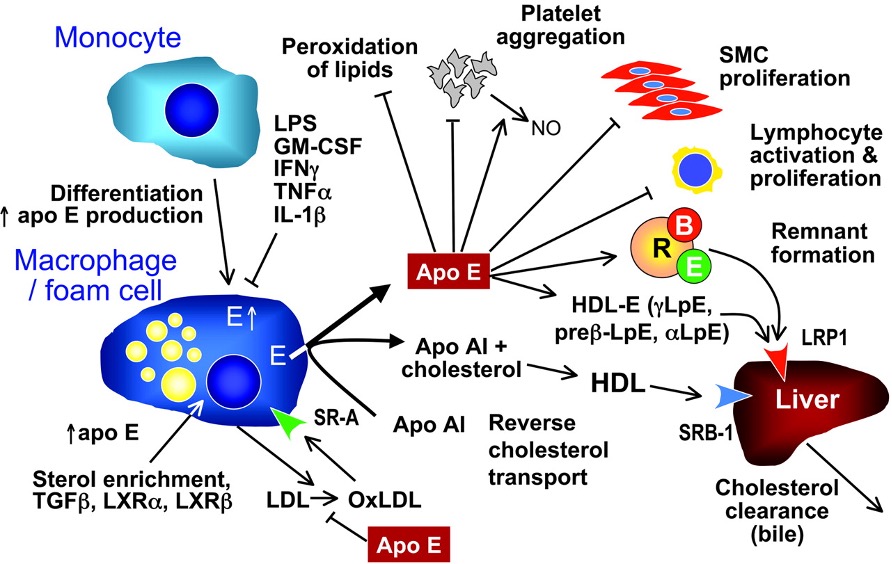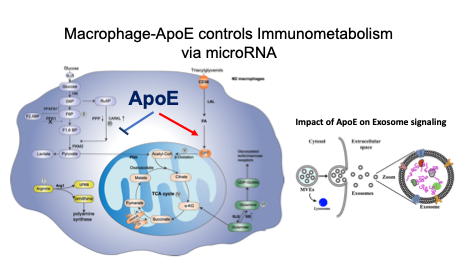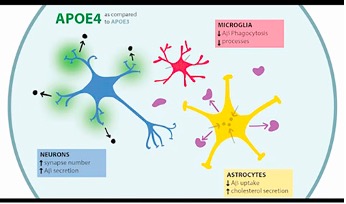Apolipoprotein E (ApoE) Isoforms & Macrophage Exosomes: Impact on Immunometabolism, Atherosclerosis and Neurodegeneration

Our team has built on a rich legacy of ApoE-related research in lipoprotein metabolism and atherosclerosis. We now address the new idea that this protein plays an important role in modulating the immune-regulatory properties of macrophage-exosomes.
Preliminary data support this concept and ongoing studies examine the impact of human ApoE4 on adverse exosome-controlled immune function in cardiometabolic inflammation & neurodegeneration.

New projects seek to test the hypothesis that ApoE4-exosomes are enriched with sets of microRNA and cellular metabolites that together contribute to accelerate atherosclerosis. We are also interested to test if such ApoE4-exo can accelerate the pathogenesis of Alzheimer’s disease and impair the recovery of the brain following a stroke or even traumatic injury.

